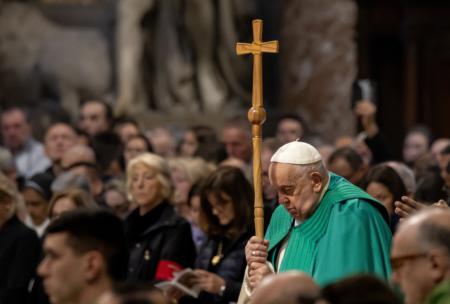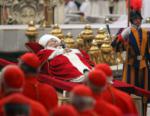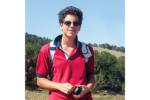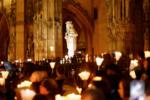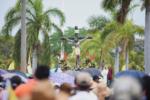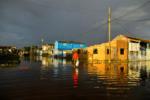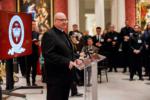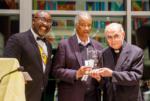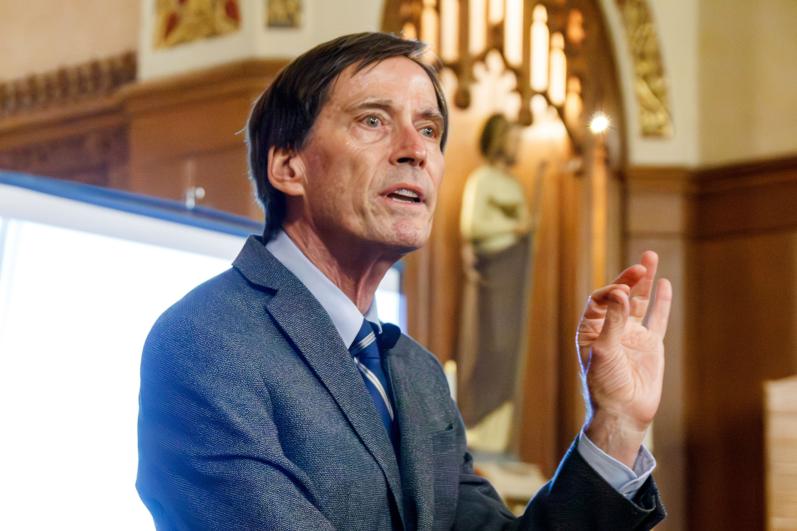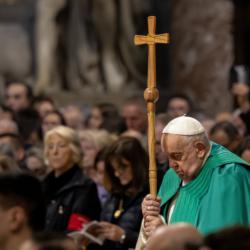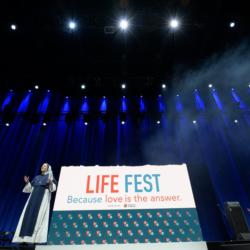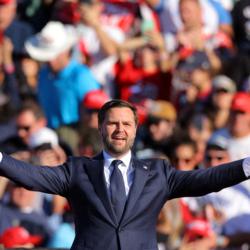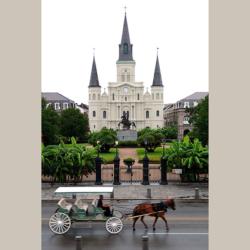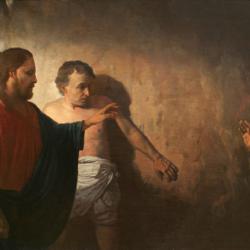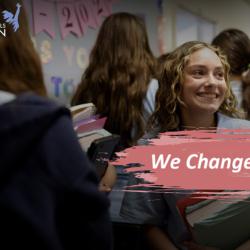'Synodality is about communion' says B.C. professor at parish talk
QUINCY -- This October, 350 bishops, including Cardinal Seán P. O'Malley, along with a selected group of theological advisers and laypeople, will join Pope Francis in Rome for the Synod on Synodality.
This meeting, intended to strengthen communication throughout the Catholic Church, will reconvene in October 2024 as well.
News of the impending synod has created concern among some Catholics, which Father Louis Palmieri of Sacred Heart in Quincy said is the result of "misrepresentation."
"People have a misunderstanding of what the synod is all about," Father Palmieri told The Pilot. "They feel as if it is going to change Church doctrine, and it isn't."
To counter this "misunderstanding," Father Richard Lennan, a professor of systematic theology at Boston College's School for Theology and Ministry who has served as a visiting priest in Quincy's Divine Mercy Parish for 15 years, lectured about the meaning of synodality at Sacred Heart Church on Sept. 21.
"Synodality is to listen to each other," Father Lennan told the Pilot. "Out of an expectation that in doing so, we're going to hear the voice of God guiding us to live our faith more authentically."
Since its earliest days, Father Lennan said, the Church has used synodality to decide how to respond to the spiritual dilemmas it has faced throughout history.
"It's not a new thing that Pope Francis made up," he said. "Synodality is there in the Acts of the Apostles."
He said synodality is meant to give the Church the freedom to come together and develop solutions to "new situations," including the role of women and LGBTQ people in the Church, the climate change crisis, and the relationship between the Catholic Church and other Christian denominations.
Synodality thinks of the Church as "a pilgrim community," made up of people who undergo constant change as they go on a spiritual journey.
"Along our pilgrimage," Father Lennan said, "we experience all sorts of new things, new questions, that call for responses. Synodality is a way of developing the answers to those questions."
While synodality respects tradition, it believes that the Church must always be looking toward the future. According to the notion of synodality, all baptized Catholics have a responsibility of "communion, participation, and mission" within the Church.
"The thriving of the Church's life is not simply a matter for Pope Francis and for Cardinal Seán," Father Lennan said. "It's a matter for all of us."
This means that synodality emphasizes equality, and the unique gifts that every member of the Church can bring to it regardless of hierarchy. To make this point, he said, those at the synod in Rome will sit at circular tables as they work in groups. By contrast, at a typical synod, participants are seated on risers according to rank.
"Synodality is not about one group of the Church having power over another group," Father Lennan said. "Synodality is about communion. It's about what we share."
He added that, since the beginning of his papacy, Francis has emphasized the importance of synodality and listening in a way that transcends Church hierarchy. This especially involves listening to marginalized people and people from diverse backgrounds.
"Listening, for Francis, has two dimensions," Father Lennan said. "It's primarily about listening to the Holy Spirit, but we listen to the Holy Spirit by listening to each other, because no one of us has the whole wisdom that the Spirit gives to the whole body."
Synodality also requires the Church to acknowledge the context of its time, its limitations, and its sins, especially in regard to the sexual abuse crisis.
"It's not merely feeling bad or guilty," Father Lennan said, "but recognizing that the Spirit calls us to something different."
Those in Rome will certainly disagree with each other as they discuss, but Father Lennan explained that synodality is not a debating contest with winners and losers. Instead, it is a willingness to accept other opinions, and that "God wants something different for the Church than what I do."
"And maybe that comes from the voices of different people," he added. "Including people we might not normally listen to."
He said that the belief that God must agree with a single person all of the time is tantamount to idolatry.
Some audience members were skeptical of the synod and whether it would stray too far from the foundations of the faith, but Father Lennan told them to remain optimistic.
"This is not magic," he said. "This is not that Pope Francis will snap his fingers and everything will be different. It's an invitation."
He said that some people in the Church will inevitably "go in wrong directions" because they are human, but that the Holy Spirit is "generally" leading people to the right place.
"If those 350 people (at the synod) are collectively willing to be attentive and faithful to the Spirit," he said, "that's what I'm willing to trust."
Father Palmieri reminded those in attendance that the Church has already survived 2,000 years and said that it would outlast all of those in the church building that night.
"I pray to God that the vision of Pope Francis will come to bear fruit," he said.
Although the synod sessions will take place over two Octobers in Rome, Father Lennan said that synodality is not something that happens once and forever. Everyone in the Church, from bishops to laypeople, must continually participate in the discussion.
"The Church cannot be the Church without all of us," he said. "There's no first-rank citizens and second-rank citizens in the Church."
